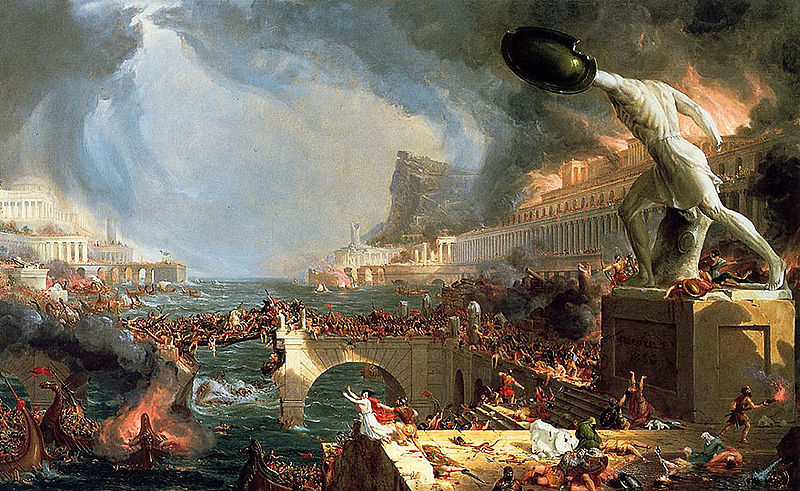Guest Post by *Eric A. Anderson* Guest Post
I have a little boy. He is my first, and most likely, only child — and he is everything to me.
I once thought that I knew what love is. I am still learning that I had no idea I could love anyone so deeply. I would lay my life down for him in a heartbeat, and will viciously attack any who dare threaten it.
There are those that threaten it every day.
Those that, in the past, I have professed to love and who, in turn, profess to love my son:
They are my parents.
They are my older sisters.
They are my Aunt, and my Uncle.
They move their mouths as they profess their love for my son, but I know in my heart that it’s not true. They are lying to both him and themselves.
They are lying because they are climate change deniers.
Because they vote for people, parties, policies and platforms that are actively contributing to the destruction of the planet my son depends on for his future survival. Or, they don’t vote at all.
When I confront them on this fact, they argue with me. They cajole and threaten. They scoff at the precautionary principle. Throughout, I am left dumbfounded. I ask them, “If there were even the tiniest chance you could be wrong, why would you risk the future of your family?” To which, they consistently reply in some manner of, “Well, it doesn’t matter anyway. I’m so old I’ll be long gone.” And so, their words of love are hollow. They are selfish. They are hypocrites. They are killers.
They care more about their ideology, than they care for my son. I have to call them what they are.
Therefore, if I continue to profess my love for both them, and my son, what does that make me? What does that make the man who professes that he is willing to go to any lengths to try and ensure that his son has a future that doesn’t read like a dystopian novel? A future wherein, my son doesn’t look at me and say “Daddy, why didn’t you do something???”
To do both makes me the hypocrite. But I’m not a hypocrite.
Which is why I have made the decision to shun them all.
They need to feel the repercussions of their actions.
Everyone one of them do. Immediately. There is simply no time to lose.
I would be lying if I told you this isn’t the most difficult decision of my life.
However, I believe this drastic act of protest is the only thing that will bring them to their senses about how deadly serious I am about the risk that their climate change denying poses to my son’s future.
We live in desperate times. And desperate times, call for desperate measures.
I’ve told them all that they are welcome to join my family again upon photographic proof that they have voted for political candidates who will work to ensure ecologically sane policies.
I exhort you to do the same, if indeed, the love you profess for your children is true.
We all must shun the climate change denying hypocrites that profess to love us from one side of their face, while they sell our future down the road with the other. Enough is enough.
Please think hard about joining me in shunning them all.



 Something is moral if it is good for people you know. Something is ethical if it is good for people you don’t know.
Something is moral if it is good for people you know. Something is ethical if it is good for people you don’t know.